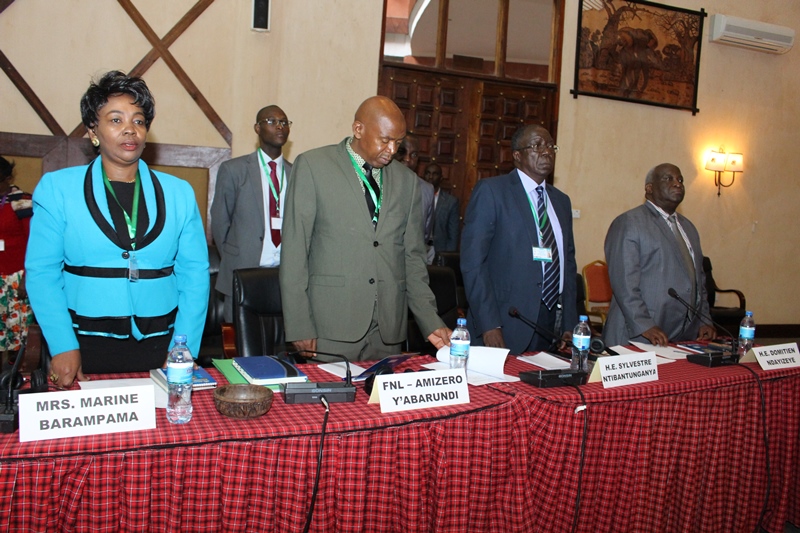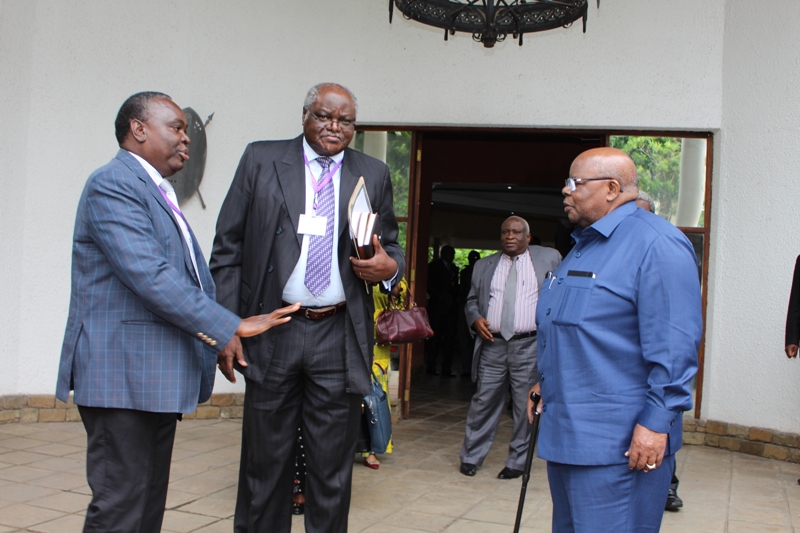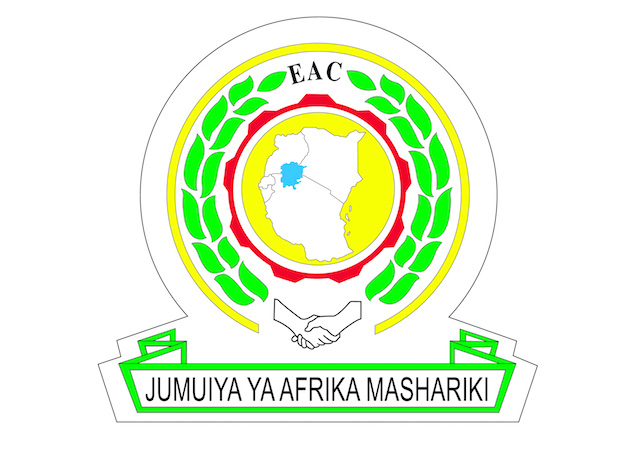
5th and Final Round of Inter-Burundi Dialogue Begins
East African Community Secretariat, Arusha, Tanzania, 25th October, 2018:The 5th and Final Round of the Inter-Burundi Dialogue bringing together political parties and political actors in the Burundian conflict started today at the Ngurdoto Mountain Lodge in Arusha, Tanzania.
Speaking at the opening session of the Dialogue, the Facilitator to the talks, retired Tanzanian President Benjamin William Mkapa, urged the participants to take advantage of the various roadmaps and come up with a roadmap that would incorporate basic principles for holding free and credible elections in 2020.
“Take note of the Kayanza Roadmap of 2018 and the Entebbe Roadmap of 2018 and the fact that the roadmaps are not consensual,” said President (Rtd) Mkapa.
The government and the ruling CNDD-FDD party came up with the Kayanza (II) 2018 Roadmap while the Entebbe 2018 Roadmap is a product of the country’s internal and external opposition groups.
President (Rtd) Mkapa said that his team would develop a roadmap based on the Kayanza Roadmap 2018 and the Roadmap that would be produced by the participants at the ongoing meeting.
The Facilitator expressed his displeasure at the failure by the government of Burundi to attend the 5th and Final Dialogue even though invitations were sent out to participants for the Dialogue to be held from 19th – 24th October, 2018.
“The Government requested the Dialogue to be postponed to begin from 24thOctober, 2018 onwards. The request was accepted and the Dialogue was scheduled to be held from 24th – 29th October, 2018,” he said.
The Facilitator disclosed that the Government requested again for the Dialogue to be postponed to November 2018, and asked the Facilitator to share beforehand the list of participants.
“The Government further proposed that the agenda of the Dialogue be discussions of the 2018 Kayanza Roadmap. The Facilitator could not accept such demands and excuses hence proceeded to arrange the Dialogue be held,” said President Mkapa.
“To date, there is no formal notification from the Government of Burundi on attendance,” he added.
The Facilitator urged the participants to work on a consensual roadmap to be submitted to the Summit of EAC Heads of State for consideration.
The Facilitator disclosed that the 19th Ordinary Summit of the EAC Heads of State held in Kampala, Uganda on 23rd February, 2018, expressly directed him to ensure “convergence and expeditiously conclude the Inter-Burundi Dialogue.”
He said that his intentions to expeditiously conclude the dialogue was affected by the Government of Burundi’s decision to postpone any activity related to the Dialogue until such time after the Referendum. The Referendum was held on 17thMay, 2018 and the new Constitution of Burundi was promulgated on 17th June, 2018.
After the promulgation of the Constitution, the Facilitator directed the Facilitation Team to consult with the Government of Burundi, political parties, the external opposition, civil society, youth, women, religious groups and media on the holding of the 5th Session and the possible agenda.
After the consultations, the Facilitator arrived at the view that there was a general consensus amongst most stakeholders on the need to continue with the Inter-Burundi Dialogue under the auspices of the EAC, so as to provide a platform for the Barundi to discuss pending issues and prepare a roadmap for 2020 elections.
The Facilitation Team advised the participants to consider for thematic areas in coming up with a roadmap to the 2020 general election, namely: Political Issues; Electoral Issues; Socio-economic Issues, and; Security Issues.
NOTES TO EDITORS:
The Summit of EAC Heads of State in 2015 appointed Ugandan President Yoweri Museveni as the Mediator in the Burundian conflict. In 2016, the Summit also appointed retired Tanzanian President Benjamin William Mkapa as the Facilitator to the Burundi Dialogue.
The Kayanza I Roadmap was a UN sponsored initiative that sought to tackle issues surrounding the 2015 general election. It brought together government and other stakeholders including the ruling party and opposition parties.
Kayanza II Roadmap is largely a roadmap by government and the ruling CNDD-FDD Party towards the 2020 election.
The internal and external opposition groups who were not party to Kayanza II roadmap met in Entebbe, Uganda in September 2018 and came up with the Entebbe Roadmap to the 2020 election in Burundi.
It is this documents that the Facilitator wants the participants in the 5th Dialogue to combine into a common roadmap to the 2020 election that the Facilitator will present to the Summit of EAC Heads of State.
-ENDS-
For more information, please contact:
Mr Owora Richard Othieno
Head, Corporate Communications and Public Affairs Department
EAC Secretariat
Arusha, Tanzania
Tel: +255 784 835021
Email: OOthieno [at] eachq.org
About the East African Community Secretariat:
The East African Community (EAC) is a regional intergovernmental organisation of five Partner States, comprising Burundi, Kenya, Rwanda, Tanzania and Uganda, with its headquarters in Arusha, Tanzania.
The EAC Secretariat is ISO 9001:2008 Certified

